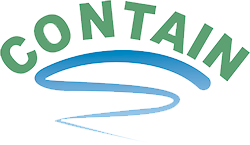Work package 3 | Social understanding and acceptance of CCS storage proposals

Summary
There is little public awareness of CCS and attitudes to it seem to be mixed and influenced by many factors including how information is presented and by whom, previous experience and values, location, trust in risk managers and so on. While it may not be necessary for the general public to understand the details of CCS storage proposals, thinking through their risks and benefits is critical for acceptance. Also, some groups, such as regulators, are likely to need more detailed technical information to inform their decision-making. This means we need to develop different types of information and methods of communication for different audiences. In this project, we will use several methods to explore how different groups understand CCS technologies, what influences their acceptability and how we can effectively engage people in decision making about them. First, we interview people from industry, regulators, policy makers, interest groups, proposed cluster communities and communities unlikely to be directly affected by CCS proposals in order to establish what they understand about CCS and its risks and benefits. Second, we will use an online survey to investigate what influences acceptability of and attitudes to CCS. Finally, two workshops will be used to explore how different public groups debate and decide about CCS in the context of other energy options (eg, renewables, shale gas, conventional fossil fuels) and to test how different types of information can help in these decisions. Through these methods, we will develop tools and techniques that can be used by other people in discussions about CCS.
Technical information
This work package will explore the factors that determine public and stakeholder understanding and acceptability of CCS storage proposals, and develop and test novel information materials and engagement methods that can help reduce social barriers to CCS deployment. The following questions will guide the research:
- how do different public/stakeholder groups conceptualise CCS?
- how are the risks and benefits of CCS perceived by different public/stakeholder groups?
- how does variation in proposal, audience and communication characteristics influence these perceptions and shape acceptability of CCS proposals?
- what are the most effective engagement methods for encouraging societal involvement in, and acceptance of, CCS proposals?
The first question focusses on understanding the mental models held by different public, stakeholder and expert groups. First, 'mental models interviews' will be conducted with representatives of industry, regulators, policy makers, interest groups, proposed cluster communities and communities unlikely to be directly affected by CCS proposals. Participants will be asked to describe their understanding of CCS methods (with a particular focus on depletion storage scenarios as developed in work package 1 and work package 2), risks and benefits, including drawing influence diagrams of processes and impacts. Different types of risk will be probed, as will use of imagery, language and analogy.
The other questions examine acceptability and engagement. An online deliberative survey will be used to examine the impact of different information framings, contextual and audience factors which influence acceptability. The survey will explore the impact on acceptability of different information framings and content, such as different features of proposals and different contextual information. In addition, the impact on acceptability of audience characteristics (eg industry experience, education, values) will be examined.
Finally, two face-to-face deliberative workshops will be included to explore how different publics (cluster communities versus those not directly affected) socially construct preferences for CCS in the context of energy system transition. Participatory methods used in previous work will be combined with information developed through the interview stage and deliberative survey to test CCS engagement methods that may be rolled out to other communities. Lessons from this phase, together with the previous phase, will be summarised in an outreach and engagement toolkit.

